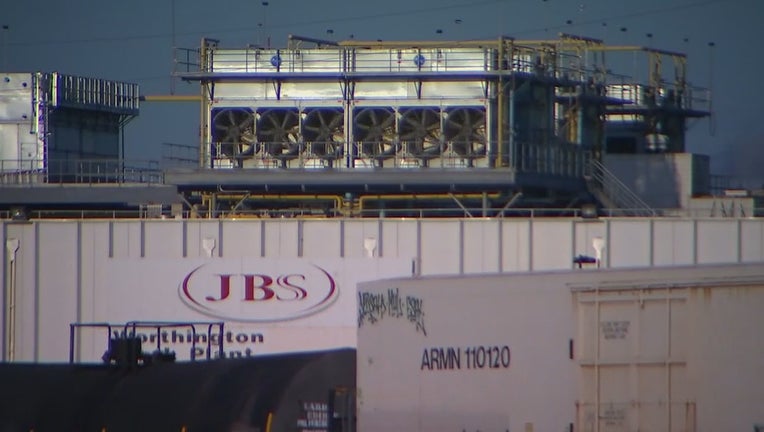How are the plant closures impacting grocery store supply chains?

The JBS plant in Worthington, Minnesota is temporarily closed due to a COVID-19 outbreak. (FOX 9)
MINNEAPOLIS (FOX 9) - With meat processing plants closing due to COVID-19 outbreaks, there are concerns on how this will impact the supply chain to grocery stores.
Dr. Kathik Natarajin is an assistant professor of supply chains and operations at the University of Minnesota. He says the closures may begin to impact what appears at the meat counter.

How are the plant closures impacting grocery store supply chains?
With meat processing plants closing due to COVID-19 outbreaks, there are concerns on how this will impact the supply chain to grocery stores.
“We are beginning to anticipate shortages of meat in the grocery stores, both in Minnesota and all across the country, and that’s why you see big companies like Tyson Foods come out and put notices or issue statements saying that the food supply chain could be impacted,” he said.
President Donald Trump issued an order Tuesday night that will keep meat processing plants open amid the pandemic. Though when plants reopen, Dr. Natarajin says there could still be a ripple effect.
“Because the plants are closed, the farmers who raise the pigs and other animals that feed into some of these plants, those don’t have places to go, so farmers are forced to euthanize or slaughter some of these animals,” he said.
Some produce is getting destroyed because there are two different supply chains – one for grocery stores and another for restaurants. The way items are packaged and labeled for restaurant use is very different compared to items sold in stores.
“The demand for the home market has definitely gone up, but it’s not compensating for the loss of demand in the restaurant channel,” said Dr. Natarajin.
While there may be concern for meat products, he says other items are maintaining steady supply chains.
“I don’t think there’s going to be any shortages in terms of milk, or eggs or cheese or any other commodities that we all need to at least stay at home,” said Dr. Natarajin.

